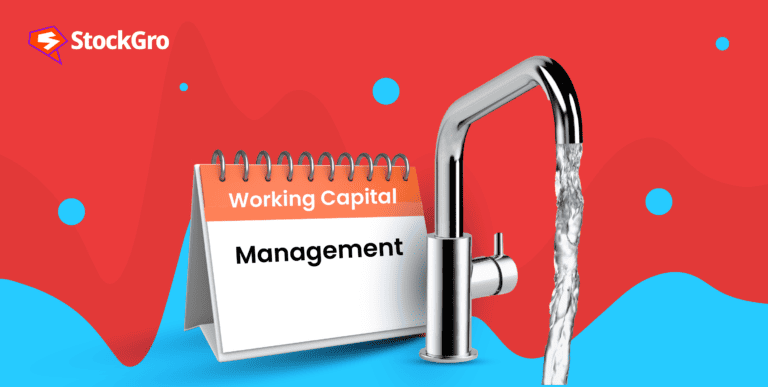
Whether starting a new venture or scaling up an existing enterprise, securing adequate financing is crucial for business success. Here, business loans come into play.
Business loans offer access to the required capital to meet operational expenses and fuel expansion initiatives. Banks and financial institutions provide lump sums that can cover various expenses, from inventory to equipment to facility upgrades.
Borrowers must repay the principal borrowed plus interest charges by agreed upon due dates to fulfil loan obligations.
But do you know that to get a business loan, you need a project report? So, what is a project report, and how will you create one? Let’s see in this article.
What is a project report for a business loan?
A business project report for a bank loan is a comprehensive document that provides the details of your business project. It also explains why you need financial assistance from the bank or financial institution.
This report serves as a master blueprint, giving potential lenders an understanding of the feasibility, profitability, and possible risks of your project.
Thus, developing a robust business project report for a bank loan can substantially increase your chances of obtaining the requested loan amount with favourable conditions.
Also read: How can financial literacy month help you achieve your money goals?/
How to make a project report for a business loan?
Usually, the format of a business project report for a bank loan varies from loan to loan. However, a good report generally contains the same components.
Here’s a sample project report for bank loans for new business:
Introductory page
This page deals with introducing your new business. It should express the objectives of your business and the reasons behind its formation.
Executive summary
In this part, give a summary of your business project with a focus on the objective it is pursuing, expected outcomes and the amount of loan you want to access.
Project description
Explain the scope of the project and list the tasks to be done. Provide information about the target market, expected demand and the project’s duration.
Details of promoters
Here, the information regarding the promoter’s qualifications, skills and experience has to be stated.
Details of employees
Similarly, the employee’s skills, qualifications and experience should also be noted.
Production plan
On this page, you must mention the details about the machinery and plant used, the raw material used, the manufacturing process, etc.
Marketing strategy
This elaborates on the marketing and sales strategies of your products or services.
Financing details
Mention details on different financing alternatives, like equity, other loans, etc., that your business has already taken. It will inform your loan providers if your company is indebted.
Project cost estimation
Borrowers must also mention the projected cost of the entire project which arises initially.
Business financials
This is a critical section where you present detailed financial estimates, including revenue, cash flow, and profit and loss statement projections. Here, you must focus on showing the earning potential and how the loan will facilitate the development of your company.
Loan repayment plan
This section should contain a clear repayment plan for the loan.
Break-even point evaluations
Here, mention the point where the revenue of the project will be equal to the project’s costs. Also, mention the project feasibility ratio.
Conclusion
Finally, summarise the main strengths of the project and conclude the report. Make it short and powerful.
Must read: Fintech Innovations and Personal Finance Apps
Is it mandatory to get a project report for business loans?
While a project report is not always mandatory for all loan applications, taking the time to thoroughly research and analyse your business proposal can prove quite valuable.
For smaller unsecured loans or those with a limited amount, banks and financial institutions may evaluate borrowers based primarily on their credit history, existing profitability, debt levels, and business experience rather than a detailed project report.
However, crafting such a report allows entrepreneurs to more fully explore their business concept. Even if not formally required, including a well-researched report demonstrates initiative and commitment to due diligence that lenders likely appreciate.
Tips for writing project report
Here are some tips for writing a project report for a business loan:
- Follow the standard format of a project report.
- Be sure to communicate your ideas in a manner that is easy to understand for people of varying backgrounds. Steer clear of complicated phrases, industry-specific terminology, and ambiguous wording.
- It is essential to share data and details that realistically portray the present circumstances, backed by thorough investigations of the market, reputable reports from the industry, and other dependable sources.
- Emphasise the strengths and benefits of your project, such as the distinctive worth being offered, competitive differentiation, or positive social effect. Explain how your project will generate revenue and profit and how you will repay the loan on time and in full.
- It is important to include any documentation that demonstrates your business’s legitimacy and financial health, such as your business plan, tax returns, financial statements, bank statements, etc.
- It’s also vital to present your report professionally, using a clear font, appropriate margins, headings, tables, charts, graphs, etc. You can also use a project report template or software to make your report more appealing and easy to read.
Also read: Mastering money management for freelancers and gig workers
Bottomline
In conclusion, a business loan is vital for both new and ongoing businesses on the growth path. However, a detailed project report is needed often to get a business loan.
While not always mandatory, a well-researched and analysed project report can significantly increase your chances of getting a loan. So, crafting a solid report when seeking a business loan is a smart move. It not only strengthens the credibility of your loan application but contributes to your overall business success.

